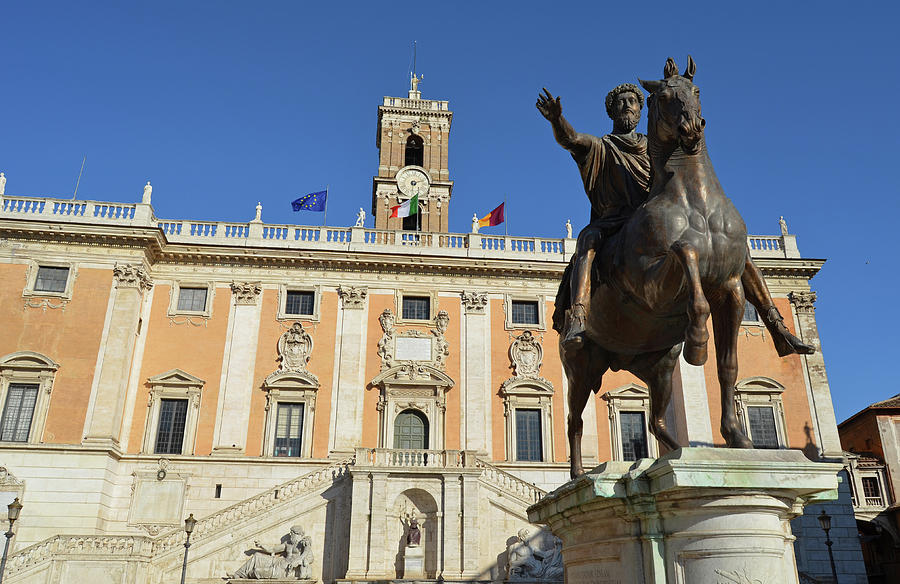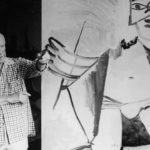Marcus Aurelius was emperor of Rome during the 2nd century AD, the last in a line of five emperors known to have ruled Rome with authority, humanity, and competence. He is renowned for being a wise and noble leader whom Plato referred to as “The Philosopher King”. His own reflections on leadership and what it means to lead a good an virtuous life were captured in a series of books known as “The Meditations”, seminal texts in the school of Stoicism which are to this day often quoted.
“The things you think about determine the quality of your mind.” Marcus Aurelius
The field of leadership is supported by thousands of books, videos and training courses, but of all of the texts I’ve read and the courses I’ve studied, I’ve yet to find a more pragmatic guide to being an authentic leader. The last of the Five Good Emperors, Marcus Aurelius is a reminder that despite the saying that “absolute power corrupts absolutely,” that is not always the case. At the time of his death, he was one of the most powerful people on earth. He could have had anything he wanted, and few, if any, would dare challenge him on anything. And yet he proved himself deserving of the power he held. Under Marcus Aurelius, the empire was guided by virtue and wisdom.
We know his philosophy as Stoicism, practiced by not just by Marcus but also by Seneca, Epictetus, Diogenes, and so many others. When Marcus Aurelius died and his successor took his place, the Roman world began a decline that it would never recover from. His extraordinary wisdom is among the most valuable we can study. Here are the top lessons that have influenced me the most –
* Reality is shaped by your opinion: There is no “objective” reality out there— we shape our own reality. When people insult us, try to harm us, or criticize us — it isn’t the insult which hurts us. It is our interpretation of what they are saying which hurts us. Marcus Aurelius tells us:
“If I do not view the thing as an evil, I take no hurt.”
Marcus Aurelius also tells us:
“Reject your sense of injury, and the injury itself disappears.”
Any “injury” we receive in life is just our opinion. One metaphor I love is – imagine you’re in a boat in the middle of a lake. It is foggy and dark. You suddenly get hit by another boat, and you bump your head. You’re angry and frustrated, and want to curse out the other person who just bumped into you. But then when the fog clears, you realize that the other boat was empty. Now you no longer feel angry, because you realize the other boat was empty. Realise that everyone else who tries to harm us is just an empty boat.
* Maintain self-control. You can choose to spend your time and energy languishing over things that have already happened, or you can choose to be calm and address any problems that arise.
“Understand the difference between responding and reacting.”
* Do less: In one of Marcus Aurelius’ meditations to himself, he reminds himself the importance of doing less in life— and cutting out the superfluous actions from his life:
“If thou wouldst know contentment, let thy deeds be few,’ said the sage. Better still limit them strictly to such as are essential, and to such as in a social being reason demands, and as it demands.”
We need to cut out the unnecessary things in our lives. The less superfluous actions, words, thoughts, and emotions — the more focus we will have for what is really important to us in life. That might be time with your family, time to do your creative work, or the chance to help others.
* Death is knocking at your door: I think about death a lot. A lot of people forget the phrase: “memento mori” — remember, you will be dead soon. When we know that death is close, we don’t waste our time. We don’t waste our precious leisure time watching TV or other forms of passive entertainment. We rush into doing what we are passionate about, and work that is meaningful to us. We spend more time with our loved ones, and omit superfluous people and actions from our lives.
“Take it that you have died today, and your life’s story is ended; and henceforward regard what further time may be given you as an uncovenanted surplus.” – Marcus Aurelius
Reminding ourselves of death gives us focus.
* Never complain: Why must we complain about the world? If there is someone who annoys you — just ignore them. Do you hate your job? Either quit your job, or figure out a way to make it less painful or miserable. We often cannot change our external situations in the world — but we can always change our attitude towards it. And not only that, but life is all about making the best of what we have.
“Is your cucumber bitter, throw it away. Are there briars in your path? Turn aside. That is enough.” – Marcus Aurelius
Most of us don’t have much time, energy, or money. Yet given our limited means, how can we make the best of what we have?
* Help the common good: He who lives for himself is truly dead to others. How do you find your purpose and sense of mission in life? Simple — think of how you can best help the “common good.” Marcus Aurelius reminds himself:
“Avoid all actions that are haphazard or purposeless; and secondly, let every action aim solely at the common good.”
It is hard. And once you help others, forget it. Better yet— don’t even be conscious that you’re helping others. Marcus Aurelius tells us to have “no consciousness of all of what he has done, like the vine which produces a cluster of grapes looks for no more thanks than a horse that has run his race.” The pleasure of having helped others is good enough.
These are just a glimpse of the timeless words of wisdom, motivation and life, penned down in Meditations, the journal that Marcus Aurelius kept for himself. I do suggest this as a once in a lifetime read for leaders, managers and entrepreneurs of today. There is so much we can learn from lives of exemplary rulers and warriors that can be applied to modern corporate world, or for that matter, to life in general! After all, a smart man learns from his mistakes, but the wise man learns from the mistakes of others.





 The World of Polymaths and Multi-Disciplinarians
The World of Polymaths and Multi-Disciplinarians